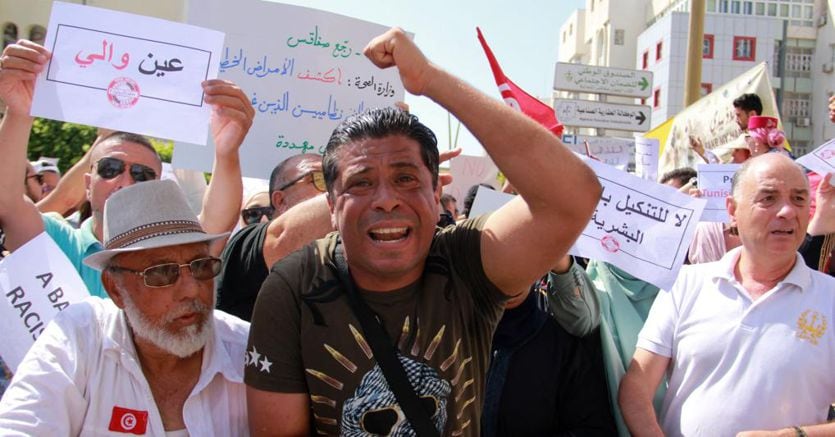Listen to the audio version of the article
It was supposed to arrive on June 28, formalizing the agreement launched with the threesome mission beginning of June by the Italian premier Giorgia Meloni, her Dutch counterpart Mark Rutte and the president of the EU Commission Ursula von der Leyen. It was postponed to July 3 due to the “discussions still in progress” between the parties. The EU and Tunisia have postponed the signing of the memorandum of understanding scheduled for Monday with an ad hoc trip by Enlargement Commissioner Oliver Varhelyi.
The agreement was supposed to release a first tranche of aid for 150 million euros to the North African country, with the prospect of disbursing another 900 million in the event of an agreement with the International Monetary Fund for the almost 2 billion dollar loan that has been wavering for months .
The formal reason for the postponement is the concomitance of the «Feast of the Sacrifice (a Tunisian national holiday, ed) – said a spokeswoman for the EU Commission – So we will only be able to continue the discussions from Monday. Our goal is to be able to carry forward this memorandum of understanding immediately after the European Council”. The substantial one seems linked to nodes to be defined in a protocol that also touches on one of the hottest dossiers in Rome and Brussels, the management of migratory flows.
From Tunisia, half of the departures to Italy
The signing of the agreement was anticipated to the media by Foreign Minister Antonio Tajani, announcing an aid package and bilateral agreements for some “pillars” along the Tunis-Brussels axis. The main ones are the strengthening of economic support, the energy transition of Tunisian industry and the most sensitive issue for the Italian government: “support against human trafficking”, as Tajani defined it, referring to departure control measures of migrants from the Tunisian coasts. The North African country, one of the top 20 continental economies by GDP, is in the throes of an economic and social crisis that has worsened under the government of Kais Saied, accused of having engulfed Tunis in a spiral of autocracy and xenophobic tendencies.
His verbal offensive against sub-Saharan migrants, denounced as architects of a plot to “Africanise” Tunisia, cost him a rift with the African Union and the freezing of part of the World Bank’s programmes, as well as unleashing a parallel wave of repatriation or escape to the north. Tunisia has been the basis for the departure of 30,549 of the just over 60,350 migrants who have landed in Italy since the beginning of 2023, according to data collected by the UN High Commissioner for Refugees, a blockade that exceeds the almost 28 thousand registered by Libya. A further crash of the country, given several times on the verge of default, could trigger a crisis that evokes parallels with that of 2015.
